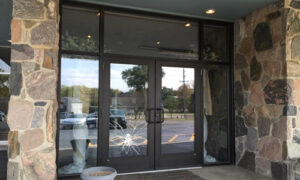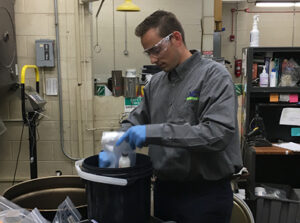Home » Business News (Page 2)
Category Archives: Business News
Signs Your Vintage Fountain Pen Needs Restoration: A Guide for Pen Enthusiasts
Vintage fountain pens are not just writing instruments; they are pieces of history, craftsmanship, and elegance. For collectors and enthusiasts, owning a vintage fountain pen is akin to owning a piece of art. However, with age and use, these pens may require restoration to maintain their functionality and beauty. In this comprehensive guide, we’ll explore the signs that indicate your vintage fountain pen may need restoration, as well as the steps you can take to preserve its integrity.
Nib Issues
The nib is the heart of a fountain pen, responsible for delivering ink onto the paper. Signs of wear or damage to the nib can significantly impact the writing experience. Look for the following signs:
- Scratchiness: If the nib feels scratchy or rough on the paper, it may indicate misalignment or damage to the tipping material.
- Ink Flow Issues: Inconsistent ink flow, skipping, or excessive dryness can be signs of a clogged feed or damaged nib.
- Bent Nib: A bent nib can occur due to mishandling or accidental dropping of the pen, leading to poor performance and uneven writing.
Cracks and Discoloration
Vintage pens are often made from materials like celluloid, ebonite, or hard rubber, which can degrade over time. Cracks or discoloration in the pen body or cap are common indicators of aging:
- Cracks: Check the body and cap of the pen for hairline cracks or fractures, especially around the barrel threads or cap lip.
- Discoloration: Fading, yellowing, or browning of the material can be signs of oxidation or exposure to light and moisture.
Filling Mechanism Malfunctions
Many vintage fountain pens use intricate filling mechanisms such as lever fillers, piston fillers, or sac fillers. Problems with these mechanisms can affect the pen’s ability to hold and dispense ink:
- Sac Deterioration: Rubber sacs used in sac fillers can deteriorate over time, leading to leaks or ink seepage.
- Corroded Parts: Metal components of filling mechanisms can corrode or rust, hindering their operation.
- Stiffness or Resistance: Difficulty in operating the filling mechanism, such as a stiff lever or tight piston, may indicate the need for lubrication or replacement of parts.
Cap and Clip Issues
The cap and clip of a vintage fountain pen serve both functional and aesthetic purposes. Pay attention to the following issues:
- Loose Cap: A loose cap that doesn’t securely fasten onto the pen can result in ink evaporation and drying out of the nib.
- Clip Misalignment: A misaligned or loose clip can scratch the pen body or cause damage when attaching it to a pocket or notebook.
- Rust or Corrosion: Metal clips or bands on the cap can corrode over time, affecting their appearance and functionality.
Odor and Residue
Unpleasant odors or residue inside the pen can indicate mold, ink buildup, or deterioration of internal components:
- Moldy Smell: A musty or moldy odor may suggest the presence of mold or mildew inside the pen, often due to ink residue or improper storage.
- Ink Residue: Excessive ink buildup inside the pen can clog the feed and affect ink flow, leading to messy writing and staining.
General Wear and Tear
Inspect the overall condition of the pen for signs of wear and tear:
- Scratches and Scuffs: Surface scratches or scuffs on the pen body or cap are common with regular use but can detract from its aesthetic appeal.
- Engraving Fading: Engraved or embossed markings on the pen may fade over time, diminishing its historical or sentimental value.
Conclusion
Vintage fountain pens are cherished possessions that require proper vintage fountain pen restoration to preserve their beauty and functionality. By being vigilant for signs of wear and addressing them promptly, you can ensure that your vintage fountain pen remains a cherished heirloom for generations to come. Whether it’s restoring the nib, repairing cracks, or servicing the filling mechanism, entrusting your pen to a skilled pen restorer can breathe new life into your treasured writing instrument. Remember, with proper care and attention, your vintage fountain pen will continue to inspire and delight for years to come.
A Comprehensive Guide to Hiring a Reliable Fort Lauderdale Locksmith
Finding yourself locked out of your home, car, or office can be a stressful experience, especially if you’re in Fort Lauderdale and need assistance promptly. In such situations, having a trusted locksmith on speed dial can save the day. However, with numerous locksmith services available in Fort Lauderdale, choosing the right one can be daunting. This comprehensive guide aims to assist you in navigating the process of hiring a reliable locksmith in Fort Lauderdale, ensuring you receive quality service and peace of mind when you need it most.
Understand Your Needs
Before beginning your search for a locksmith, it’s essential to understand your specific needs. Are you locked out of your Fort Lauderdale home, car, or office? Do you require lock repair, replacement, or installation? Identifying your requirements will help narrow down your options and find a locksmith with the necessary expertise.
Research Local Locksmiths
Start your search by compiling a list of reputable locksmiths in Fort Lauderdale. You can ask for recommendations from friends, family, or colleagues who have used locksmith services before. Additionally, online reviews and ratings can provide valuable insights into the reliability and professionalism of locksmith companies.
Verify Credentials and Licensing
When hiring a locksmith, it’s crucial to verify their credentials and licensing. In Fort Lauderdale, locksmiths are required to hold a valid license issued by the Florida Department of Business and Professional Regulation. Checking for licensing ensures that the locksmith has undergone proper training and adheres to industry standards.
Check for Insurance
A reputable locksmith should carry insurance to protect both you and themselves in case of any damages or accidents during the job. Before hiring a locksmith, inquire about their insurance coverage and ensure it is sufficient to cover any potential liabilities.
Inquire About Services Offered
Not all locksmiths offer the same range of services. Some may specialize in residential locksmithing, while others may focus on automotive or commercial locksmithing. Before making a decision, inquire about the specific services offered by the locksmith to ensure they can meet your needs.
Request Estimates
Obtain estimates from multiple locksmiths in Fort Lauderdale to compare prices and services. Be wary of locksmiths who provide significantly lower quotes than others, as they may be using subpar materials or employing unqualified technicians. Opt for a locksmith who offers transparent pricing and provides a detailed breakdown of costs.
Ask About Response Time
When you’re locked out of your home, car, or office, you need assistance promptly. Inquire about the locksmith’s average response time and availability, especially if you require emergency services. Choose a locksmith who offers 24/7 availability and can respond to your needs quickly.
Look for Guarantees and Warranties
A reputable locksmith should stand behind their workmanship and offer guarantees or warranties on their services and products. Inquire about any guarantees or warranties provided by the locksmith and ensure you understand the terms and conditions.
Verify Identification and Credentials: When the locksmith arrives at your location, ask to see their identification and credentials to ensure they are who they claim to be. Additionally, reputable locksmiths typically arrive in marked vehicles and wear uniforms bearing the company logo for easy identification.
Trust Your Instincts: Ultimately, trust your instincts when hiring a locksmith. If something feels off or if the locksmith seems unprofessional, it’s better to look for another provider. Choose a locksmith who instills confidence and demonstrates professionalism throughout the hiring process.
Conclusion
Hiring a reliable Fort Lauderdale locksmith doesn’t have to be a daunting task. By following the steps outlined in this guide, you can find a trustworthy locksmith who meets your needs and provides quality service. Remember to research local locksmiths, verify credentials and licensing, inquire about services offered, request estimates, check for insurance, ask about response time, look for guarantees and warranties, verify identification and credentials, and trust your instincts. With the right locksmith on your side, you can rest assured that help is just a phone call away whenever you need it.
Unveiling Culinary Dreams: A Comprehensive Guide on How to Hire Restaurant Designers Near Me
Embarking on the journey of opening a restaurant is an exciting venture filled with creative possibilities and the promise of culinary success. One crucial aspect that often defines the success of a restaurant is its design. A well-thought-out and aesthetically pleasing restaurant design can set the stage for a memorable dining experience, attracting customers and fostering a unique brand identity. In this comprehensive guide, we will delve into the key considerations and steps involved in hiring the perfect restaurant designer near you.
Define Your Vision and Concept
Before diving into the hiring process, it’s essential to have a clear vision for your restaurant. Consider the type of cuisine, atmosphere, and overall theme you want to convey. This initial step will serve as a foundation for communicating your ideas effectively to potential designers.
Research Local Designers
Start your search by looking for restaurant designers in your local area. Utilize online platforms, professional networks, and recommendations from industry peers to compile a list of potential candidates. Ensure that the designers you consider have experience in the hospitality sector and a portfolio that aligns with your vision.
Evaluate Portfolios
Take the time to review the portfolios of the shortlisted designers. Look for a diverse range of projects that showcase creativity, functionality, and attention to detail. Pay special attention to projects similar to your envisioned restaurant concept, as this indicates a designer’s ability to cater to your specific needs.
Check Credentials and References
Verify the credentials of the designers on your list. Look for relevant certifications and memberships in professional organizations. Additionally, don’t hesitate to ask for references from their previous clients. Speaking with past clients can provide valuable insights into the designer’s work ethic, communication skills, and the overall success of the project.
Discuss Budget and Timeline
Openly communicate your budget constraints and project timeline with potential designers. A transparent discussion about financial expectations and project deadlines will help avoid misunderstandings later in the process. A reputable designer will work within your budget while delivering quality results.
Visit Completed Projects
Whenever possible, visit restaurants or establishments designed by the professionals you are considering. Experiencing their work firsthand will give you a better understanding of the designer’s style and the impact of their designs on the overall dining experience.
Understand Design Approach
Discuss the designer’s approach to restaurant design. A successful collaboration involves aligning visions and ensuring the designer understands the functionality, flow, and ambiance you desire. Seek a designer who can translate your ideas into a cohesive and visually appealing space.
Communication and Collaboration
Effective communication is crucial throughout the design process. Choose a designer who is receptive to your ideas, provides regular updates, and collaborates seamlessly with other stakeholders, such as architects and contractors. A harmonious working relationship will contribute to the project’s success.
Legal and Contractual Considerations
Before finalizing your decision, carefully review the contractual aspects of the collaboration. Ensure that the terms, deliverables, payment schedule, and any other relevant details are clearly outlined in the contract. Seek legal advice if necessary to protect both parties involved.
Finalize the Decision
After thorough evaluation and consideration, make an informed decision based on the designer who best aligns with your vision, budget, and timeline. Confirm the details of the project and begin the exciting journey of bringing your restaurant design to life.
Conclusion
Hiring the right restaurant designers near me is a pivotal step in turning your culinary dreams into a tangible and visually stunning reality. By diligently researching and considering the key factors outlined in this guide, you can ensure a successful collaboration that enhances the overall dining experience for your patrons. Remember, the right restaurant designer is not just a professional; they are a partner in the journey towards creating a memorable and aesthetically pleasing culinary haven.
Unveiling the Power of Forensic Accounting: When and Why it is Essential
In the complex realm of finance and business, discrepancies, fraud, and disputes often hide beneath the surface, threatening the integrity and stability of organizations. To address these issues and unearth the truth behind financial discrepancies, forensic accounting emerges as a powerful tool. This specialized branch of accounting delves deep into financial records, employing investigative techniques to uncover fraud, mismanagement, and other irregularities. This article aims to explore the significance of forensic accounting, delineate its applications across various scenarios, and highlight its pivotal role in safeguarding businesses and finances.
Understanding Forensic Accounting
Forensic accounting is the meticulous examination and analysis of financial records to detect irregularities, discrepancies, or fraudulent activities. Unlike traditional accounting practices that primarily focus on recording financial transactions, forensic accountants utilize their expertise in auditing, accounting, and investigation to dig deeper into financial data. Their objective is not merely to quantify numbers but to uncover the truth, resolve disputes, and provide accurate, evidence-based financial information for legal proceedings.
Instances Requiring Forensic Accounting Expertise
Fraud Investigations: Instances of fraudulent activities such as embezzlement, financial statement fraud, or asset misappropriation necessitate the intervention of forensic accountants. They meticulously scrutinize financial records, identify discrepancies, track transactions, and reconstruct financial activities to unearth fraudulent schemes. These investigations often serve as crucial evidence in legal proceedings.
Dispute Resolution: In cases of business disputes, mergers, acquisitions, or contract breaches, forensic accountants play a vital role. They evaluate financial data objectively, providing expert opinions and testimony to resolve disputes. Their analysis helps in quantifying losses, assessing damages, and presenting credible financial evidence in court.
Regulatory Compliance and Due Diligence: Businesses must comply with various regulations and standards. Forensic accountants ensure adherence to these regulations by conducting compliance audits and due diligence investigations. They thoroughly examine financial records, identifying potential risks and ensuring regulatory compliance to prevent legal repercussions.
Bankruptcy and Insolvency Proceedings: During bankruptcy or insolvency proceedings, forensic accountants are instrumental in assessing the financial condition of a distressed entity. They analyze financial data to ascertain the reasons behind insolvency, track assets, identify potential fraudulent activities, and provide valuable insights for the restructuring or liquidation process.
Insurance Claims and Fraud: Forensic accountants assist insurance companies in assessing claims by verifying the accuracy of financial information. They investigate suspected fraudulent insurance claims, analyze policy coverage, and quantify losses, ensuring fair settlements and preventing insurance fraud.
Conclusion
Forensic accounting near me stands as a crucial pillar in the realm of finance and business. Its specialized techniques and investigative methodologies empower professionals to uncover financial irregularities, fraud, and disputes. By leveraging their expertise in accounting, auditing, and investigation, forensic accountants safeguard businesses, mitigate risks, and provide invaluable support in legal proceedings. As the financial landscape continues to evolve, the demand for forensic accounting expertise remains steadfast, highlighting its indispensable role in preserving financial integrity and ensuring transparency in today’s complex business environment.
The Art of Kitchen Design: Unveiling the Role of Kitchen Design Consultants
The heart of every home, the kitchen, embodies more than just a space for culinary creations; it encapsulates functionality, aesthetics, and personal expression. Crafting a kitchen that harmonizes these elements requires meticulous planning and expertise. Enter the kitchen design consultant, an invaluable professional adept at transforming visions into reality, navigating the intricate maze of design choices, and orchestrating the perfect culinary haven tailored to individual preferences and needs.
What are Kitchen Design Consultants?
Kitchen design consultants are highly skilled professionals who specialize in creating functional, aesthetically pleasing, and efficient kitchen spaces. They possess a blend of artistic flair, technical expertise, and a deep understanding of ergonomics, materials, and current design trends.
Their Role
These consultants serve as guides, collaborators, and problem solvers, aiding homeowners, architects, and interior designers in conceptualizing, planning, and executing kitchen designs that align with the client’s lifestyle, preferences, and budget. Their expertise spans various aspects, including layout planning, material selection, color schemes, lighting, appliance integration, and more.
The Expertise and Skills of Kitchen Design Consultants
Design Proficiency
A cornerstone of their role is their proficiency in design principles. They possess an innate sense of spatial awareness, understanding how to optimize space while ensuring a seamless workflow within the kitchen. Their expertise extends to various design styles, from modern and minimalist to traditional and rustic, allowing them to cater to diverse client preferences.
Technical Knowledge
Beyond aesthetics, they possess technical knowledge about materials, construction techniques, and building codes. They consider the structural integrity of the space, ensuring the design meets safety regulations while maximizing functionality.
Communication and Collaboration
Effective communication is a key attribute. They liaise between clients, contractors, architects, and suppliers, ensuring everyone is on the same page regarding design concepts, timelines, and budget considerations. Collaborating seamlessly with various stakeholders is vital for the successful execution of the project.
Problem Solving
They excel in problem-solving, anticipating challenges and devising innovative solutions. Whether it’s addressing space constraints or integrating complex appliance setups, their ability to troubleshoot ensures a smooth design process.
The Process of Kitchen Design Consultancy
Understanding Client Needs
Consultants begin by comprehensively understanding the client’s requirements, lifestyle, cooking habits, and aesthetic preferences. They may conduct interviews, surveys, and on-site assessments to gather crucial information.
Conceptualization and Design Development
This phase involves brainstorming ideas, creating initial sketches or digital renderings, and presenting design concepts to the client. Feedback is incorporated to refine the design until it aligns perfectly with the client’s vision.
Material Selection and Specifications
Consultants guide clients through material selections, recommending suitable options based on durability, aesthetics, and budget. From countertops to cabinetry and flooring, they assist in making informed choices.
Collaboration with Contractors and Suppliers
Once the design is finalized, consultants collaborate with contractors and suppliers, providing detailed plans and specifications. They oversee the implementation process, ensuring adherence to the design and quality standards.
Final Touches and Project Completion
They oversee the final touches, ensuring that every detail aligns with the envisioned design. From the placement of hardware to the lighting fixtures, they pay attention to the minutest details. Upon completion, they conduct a final walkthrough to ensure client satisfaction.
The Impact of Kitchen Design Consultants
Enhancing Functionality
By optimizing space and workflow, kitchen design consultants enhance the functionality of the kitchen. Ergonomically designed layouts minimize effort and time spent on culinary activities.
Aesthetic Appeal
Their expertise in design principles and aesthetics results in visually stunning kitchens that reflect the client’s taste while staying in line with contemporary trends.
Value Addition
A well-designed kitchen not only enhances the quality of life but also adds value to the property. Thoughtful design choices and superior craftsmanship contribute significantly to the overall value of the home.
Conclusion: Elevating Kitchen Spaces through Expert Consultation
In the realm of home design, kitchen design consultants play a pivotal role in translating dreams into reality. Their blend of creativity, technical acumen, and client-centric approach ensures the creation of kitchens that are both functional and visually captivating. From inception to completion, these professionals guide the process, leaving a lasting imprint on the heart of every home—the kitchen.
Their expertise transforms mere cooking spaces into vibrant hubs, nurturing moments of culinary delight and familial togetherness. Collaborating with these consultants unlocks the potential for homeowners to indulge in the joy of a kitchen that’s not just a place to cook but an embodiment of their lifestyle and personality.
In essence, kitchen design consultants aren’t just creators of spaces; they’re architects of experiences, crafting narratives through the artful design of the kitchen—an ode to functionality, aesthetics, and the joy of creating.
Ensuring Business Continuity: When to Engage a Nashville, TN Commercial Roof Repair Company
Nashville, Tennessee, known for its vibrant music scene and thriving business environment, boasts a skyline dotted with commercial properties, each with its unique infrastructure. Among the critical components of these establishments, the roof stands as a silent guardian, shielding businesses from the unpredictable elements of nature. However, with time and exposure, commercial roofs endure wear and tear, demanding timely attention and maintenance.
In this comprehensive guide, we delve into the pivotal signs indicating the need to hire a commercial roof repair company in Nashville, TN. Understanding these indicators can be crucial in safeguarding your business assets, ensuring structural integrity, and preserving a conducive environment for operations.
Visible Damage or Deterioration
One of the most apparent indications that prompt the engagement of a commercial roof repair company is visible damage or deterioration. Inspect the roof regularly for signs such as cracked or missing shingles, sagging areas, or water stains on the ceiling. These issues could stem from various sources, including weather damage, poor installation, or natural wear over time.
Leakage or Water Intrusion
Leaks or water infiltration are serious concerns that demand immediate attention. Nashville’s climate experiences diverse weather patterns throughout the year, including heavy rainfall and occasional storms. These weather conditions can exacerbate existing roof issues, leading to leaks that compromise the interior space, damage inventory, and disrupt business operations. Engaging a reputable roof repair company promptly can mitigate these risks and prevent further damage.
Age of the Roof
Commercial roofs have a finite lifespan, influenced by factors like material quality, installation techniques, and environmental conditions. If your building’s roof is approaching or has surpassed its expected lifespan, it’s prudent to consider engaging a professional roof repair company for an assessment. A seasoned roofing expert can evaluate the roof’s condition and recommend repairs or replacement, ensuring the longevity of your building’s protective covering.
Energy Inefficiency
An often overlooked sign of roof issues in commercial properties is an increase in energy bills. A compromised roof might result in poor insulation or ventilation, causing temperature imbalances within the building. This can lead to increased energy consumption as HVAC systems work harder to maintain a comfortable indoor environment. Seeking the expertise of a roofing professional can identify underlying problems and suggest solutions to improve energy efficiency.
Pest Infestations or Mold Growth
Roof damage, especially when accompanied by leaks, can create conducive environments for pests like insects or rodents. Additionally, moisture from leaks can foster mold growth, posing health risks to occupants and potentially damaging the building’s structure. Addressing these issues promptly by hiring a commercial roof repair company can prevent further damage and maintain a healthy indoor environment.
Regular Maintenance and Inspections
Preventive maintenance is key to extending the lifespan of a commercial roof. Regular inspections by qualified professionals can detect minor issues before they escalate, saving businesses from costly repairs or premature replacements. Establishing a maintenance schedule with a reputable Nashville, TN commercial roof repair company can be a proactive strategy to safeguard your investment.
Conclusion
The importance of a structurally sound roof for commercial properties cannot be overstated. Regular inspections, timely repairs, and proactive maintenance measures are essential in ensuring the longevity and functionality of a business establishment’s roof.
When faced with visible damage, leaks, energy inefficiencies, or other signs of roof deterioration, seeking the expertise of a Nashville TN commercial roof repair company is crucial. By addressing issues promptly, businesses can prevent further damage, maintain a safe and comfortable environment for occupants, and safeguard their valuable assets.
Prioritizing the health of your commercial roof through professional assessments and repairs is an investment in the longevity and resilience of your business. Take proactive steps to address any signs of roof issues, and ensure your establishment remains a solid foundation for success amidst Nashville’s dynamic business landscape.
Understanding the Vital Role of Tree Consultants: Why They Are Essential in Tree Management
Trees, nature’s silent sentinels, stand tall, providing shade, beauty, and environmental benefits. However, the complex nature of trees and their surroundings often requires professional guidance to ensure their optimal health, safety, and longevity. Enter the unsung heroes of arboriculture: tree consultants. These experts play a pivotal role in assessing, managing, and preserving trees in various landscapes. In this comprehensive guide, we will explore the significance of hiring tree consultants, their roles, and the myriad reasons why their expertise is indispensable in tree management.
The Importance of Tree Consultants
Trees are not mere fixtures in the landscape; they are living organisms that require meticulous care and attention. Tree consultants, armed with extensive knowledge and experience, are instrumental in safeguarding the well-being of trees. Their multifaceted roles encompass diverse areas, making them indispensable in the realm of arboriculture.
Assessment and Diagnosis
Akin to a doctor’s diagnosis, tree consultants assess and diagnose the health of trees. They possess a keen eye to detect signs of disease, infestation, or structural issues that may compromise a tree’s vitality. Through thorough inspections and analysis, they offer recommendations to mitigate problems and enhance tree health.
Risk Assessment and Management
Trees, though majestic, can pose risks, especially in urban environments. Tree consultants conduct risk assessments to identify potential hazards, such as weak branches or root decay, mitigating the likelihood of accidents or property damage. Their expertise ensures that trees coexist harmoniously with human habitation.
Urban Planning and Development
In burgeoning urban landscapes, tree consultants play a pivotal role in urban planning. They offer valuable insights into tree selection, placement, and maintenance in urban developments, striving to preserve green spaces and mitigate the adverse effects of urbanization on trees.
Preservation and Conservation
The preservation of heritage trees and conservation of rare species necessitate specialized knowledge. Tree consultants advocate for the preservation of significant trees, employing techniques that balance human needs with environmental conservation.
Expert Guidance and Recommendations
Their expertise extends beyond identification and diagnosis. Tree consultants provide tailored recommendations, encompassing pruning techniques, soil management, and appropriate species selection, ensuring the sustainable growth and longevity of trees.
Education and Community Engagement
Empowering communities with knowledge about trees and their importance forms a crucial part of a tree consultant’s role. They engage in educational programs, workshops, and outreach initiatives, fostering a deeper appreciation for trees and their preservation.
Conclusion
In conclusion, the multifaceted roles of a tree consultant are indispensable in the realm of tree management and preservation. Their expertise spans from assessing and diagnosing tree health to mitigating risks and advocating for conservation. As stewards of nature, tree consultants play a pivotal role in ensuring the well-being and sustainability of our arboreal companions.
The complex interplay between trees and their environment necessitates professional guidance, making the services of tree consultants not just valuable but essential. By recognizing their significance and seeking their expertise, we contribute to the preservation of these invaluable assets—our trees—for generations to come.
The Vital Role of Glass Repair in Preserving Baltimore’s Aesthetic and Safety Standards
In the bustling city of Baltimore, the beauty of its architecture and modernity is often exemplified through the extensive use of glass in buildings, homes, and commercial spaces. From historic structures to contemporary skyscrapers, glass plays a pivotal role in shaping the city’s skyline and enhancing its visual appeal. However, with the prevalence of glass in various constructions, the necessity of glass repair and maintenance becomes a crucial aspect of preserving Baltimore’s aesthetic charm and ensuring safety standards.
Preservation of Architectural Integrity: Baltimore’s architectural landscape boasts a blend of historic and contemporary designs, often characterized by intricate glass facades and structures. Repairing damaged or deteriorating glass elements is essential to maintain the integrity and authenticity of these architectural marvels. From iconic landmarks like the Bromo Seltzer Tower to modern corporate buildings, preserving the original glasswork contributes significantly to the city’s cultural heritage.
Enhancing Aesthetic Appeal: The visual appeal of Baltimore’s skyline owes much to the sleek and transparent beauty of glass structures. Cracks, chips, or discoloration in glass can significantly diminish this appeal, affecting the overall aesthetic value of the cityscape. Prompt glass repair not only restores the allure but also maintains the city’s attractiveness for residents and visitors alike.
Ensuring Safety and Security: Beyond aesthetics, the safety aspect of glass repair cannot be overstated. Broken or damaged glass poses serious risks, potentially causing injuries or property damage. In a bustling urban environment like Baltimore, where foot traffic and vehicular movement are constant, timely repair and replacement of compromised glass mitigate these risks, fostering a safer environment for all.
Energy Efficiency and Sustainability: Well-maintained glass surfaces contribute to energy efficiency in buildings by allowing natural light to penetrate and reducing the need for artificial lighting. Moreover, properly sealed and repaired glass windows and doors improve insulation, aiding in temperature regulation and reducing energy consumption. This emphasis on sustainability aligns with Baltimore’s commitment to eco-friendly practices and green initiatives.
Preserving Property Value: Properties with well-maintained glass elements tend to hold higher market value. Neglecting glass repair can lead to a decline in property value due to compromised aesthetics and functionality. Whether in residential neighborhoods or commercial districts, regular maintenance and timely repairs of glass installations can positively impact property valuation.
Supporting Local Economy and Expertise: Opting for local glass repair services not only ensures swift response times but also supports the local economy by investing in skilled professionals and businesses within Baltimore. These experts possess the knowledge and experience to handle various types of glass repair, using advanced techniques and quality materials, thereby ensuring lasting solutions.
Conclusion
In conclusion, the significance of glass repair Baltimore transcends mere aesthetics; it intertwines with the city’s identity, safety standards, sustainability goals, and economic vitality. Preservation of architectural beauty, enhancement of visual appeal, ensuring safety, promoting energy efficiency, maintaining property values, and supporting local expertise all underscore the crucial role of timely and proficient glass repair services.
To safeguard Baltimore’s charm and functionality, a collective effort towards prioritizing and investing in glass repair and maintenance is imperative. By valuing the upkeep of glass elements, whether in historic landmarks or modern constructions, Baltimore can continue to shine brightly through its transparent skyline while ensuring a safe and visually appealing environment for generations to come.
Lab Packing Services: A Comprehensive Guide to Safe Chemical Waste Management
Laboratories play a crucial role in scientific research, industrial processes, and healthcare. They are hubs of innovation, where experiments and tests are conducted using a wide array of chemicals and substances. However, these chemicals can become hazardous waste when they are no longer needed, expired, or pose a risk to the environment and human health. Properly managing and disposing of these chemicals is of utmost importance to maintain a safe and sustainable environment.
Lab packing services are an essential solution to the complex problem of chemical waste management. This comprehensive guide will delve into the world of lab packing services, exploring what they entail, why they are necessary, and how they benefit both organizations and the environment.
Understanding Lab Packing Services
Lab packing services refer to the process of identifying, categorizing, packaging, and disposing of hazardous chemicals and waste materials generated in laboratories. This process is carried out by specialized professionals who are trained to handle and manage hazardous substances safely. Here’s a closer look at the key aspects of lab packing services:
Hazardous Chemicals: Laboratories often use a wide variety of hazardous chemicals, including acids, bases, solvents, and reactive substances. Over time, these chemicals can become expired, contaminated, or pose risks to the lab’s safety.
Legal Requirements: Federal, state, and local regulations govern the management and disposal of hazardous waste. Lab packing services ensure that organizations comply with these regulations, avoiding penalties and potential harm to the environment.
Expertise: Lab packing services are provided by professionals with expertise in handling hazardous materials. They are knowledgeable about the properties of different chemicals and the best practices for safe packing and disposal.
Segregation and Categorization: One of the primary tasks of lab packing services is to categorize chemicals and waste materials based on their compatibility and properties. Proper segregation is crucial to prevent dangerous chemical reactions during storage or transport.
Why Lab Packing Services are Necessary
Lab packing services are necessary for several compelling reasons:
Safety: The primary concern in any laboratory is safety. Improper handling or disposal of hazardous chemicals can lead to accidents, fires, explosions, and health hazards. Lab packing services help ensure the safety of laboratory personnel and the surrounding environment.
Environmental Protection: Hazardous chemicals, if not managed correctly, can contaminate soil and water, leading to long-term environmental damage. Lab packing services are designed to prevent such contamination by ensuring the proper disposal of hazardous waste.
Compliance: Laboratories are subject to strict regulations regarding the management and disposal of hazardous waste. Failing to comply with these regulations can result in severe penalties and legal consequences. Lab packing services help organizations stay compliant with the law.
Efficiency: Lab packing services save organizations time and resources by efficiently managing and disposing of hazardous waste. This allows laboratories to focus on their core research and operational activities.
The Process of Lab Packing Services
The process of lab packing services can be broken down into several key steps:
Chemical Inventory: The first step is to conduct a thorough inventory of all chemicals in the laboratory. This includes identifying and recording information about each chemical, such as its name, quantity, date of acquisition, and hazard classification.
Segregation: Once the chemicals are inventoried, they are segregated based on their compatibility. Incompatible chemicals should never be stored together to prevent chemical reactions that can lead to accidents or fires.
Packaging: The lab packing professionals package the chemicals in accordance with regulatory requirements. This typically involves using specialized containers and labels to ensure safe transportation and disposal.
Documentation: Proper documentation is essential throughout the lab packing process. This includes labeling each container, preparing a manifest, and maintaining records of all activities.
Transportation: Lab packing services also include the safe transportation of hazardous waste to an appropriate disposal facility. The waste is transported in accordance with regulatory guidelines.
Disposal: Finally, the hazardous waste is disposed of in a manner that is both safe and environmentally responsible. This may involve treatment, recycling, or secure landfill disposal, depending on the nature of the waste.
Benefits of Lab Packing Services
Lab packing services offer numerous benefits to laboratories and organizations. Let’s explore some of these advantages:
Regulatory Compliance: By enlisting lab packing services, laboratories ensure compliance with all relevant environmental and safety regulations, avoiding costly fines and legal issues.
Risk Reduction: Properly managed chemical waste reduces the risk of accidents, injuries, and environmental harm, ensuring a safer workplace for laboratory personnel.
Environmental Responsibility: Lab packing services prioritize environmentally responsible waste management, contributing to sustainability efforts and protecting the planet.
Time and Cost Savings: Outsourcing the management of hazardous waste allows laboratories to focus on their core activities, saving time and resources in the long run.
Expertise: Lab packing professionals bring a wealth of knowledge and experience, ensuring that chemicals are handled, packed, and disposed of safely and efficiently.
Peace of Mind: Knowing that hazardous waste is being managed by experts provides peace of mind to laboratory managers and staff.
The Environmental Impact of Lab Packing Services
The environmental impact of lab packing services is significant. When hazardous waste is improperly managed, it can lead to soil and water contamination, air pollution, and harm to local ecosystems. By using lab packing services, organizations contribute to a more sustainable future by:
Preventing Contamination: Proper segregation, packaging, and disposal of chemicals prevent the contamination of soil, water, and the surrounding environment.
Reducing Greenhouse Gas Emissions: Some hazardous waste can release harmful gases into the atmosphere. Correct disposal methods minimize greenhouse gas emissions and air pollution.
Promoting Recycling and Reuse: Lab packing services often prioritize recycling or reusing certain waste materials, reducing the need for new resource extraction and manufacturing.
Long-Term Protection: By managing hazardous waste effectively, lab packing services help protect ecosystems and natural resources for future generations.
Choosing the Right Lab Packing Service Provider
Selecting the right lab packing service provider is crucial to ensure the safe and efficient management of hazardous waste. Consider the following factors when making your choice:
Experience: Look for providers with a proven track record in the field of lab packing services. Experience matters when handling hazardous chemicals.
Compliance: Ensure that the service provider is well-versed in federal, state, and local regulations, and can provide the necessary documentation and permits.
Safety Measures: Inquire about the safety measures and protocols the provider follows to protect both personnel and the environment during the lab packing process.
Environmental Responsibility: Choose a service provider that prioritizes environmentally responsible disposal methods, such as recycling and treatment.
References: Seek references and testimonials from other organizations that have used the services of the provider. This can help you gauge their reliability and performance.
Case Studies: Real-World Applications of Lab Packing Services
To illustrate the practical benefits of lab packing services, here are a couple of case studies:
University Laboratory: A university laboratory engaged a lab packing service to manage its accumulated stock of expired and unused chemicals. The service provider conducted a thorough inventory, segregated the chemicals, and disposed of them safely. This not only ensured the safety of the laboratory personnel but also reduced the environmental impact of the waste. The university laboratory was able to continue its research without the burden of managing hazardous waste.
Pharmaceutical Company: A pharmaceutical company sought the services of a lab packing provider to dispose of chemicals that were no longer required in its research and development processes. The provider efficiently segregated, packaged, and disposed of the chemicals, complying with all regulations. This not only saved the company time and resources but also contributed to its commitment to responsible corporate citizenship.
Conclusion
Lab packing services are an essential part of modern laboratory operations. They ensure the safe and compliant management of hazardous chemicals and waste, protecting the environment and human health. By choosing the right lab packing service provider and adhering to best practices, organizations can uphold their commitment to safety, sustainability, and responsible waste management.
As laboratories continue to play a vital role in advancing scientific knowledge and technological progress, it is imperative that they also play their part in protecting the planet. Lab packing services provide the necessary tools and expertise to make this vision a reality, ensuring that laboratories can thrive while minimizing their environmental footprint.









